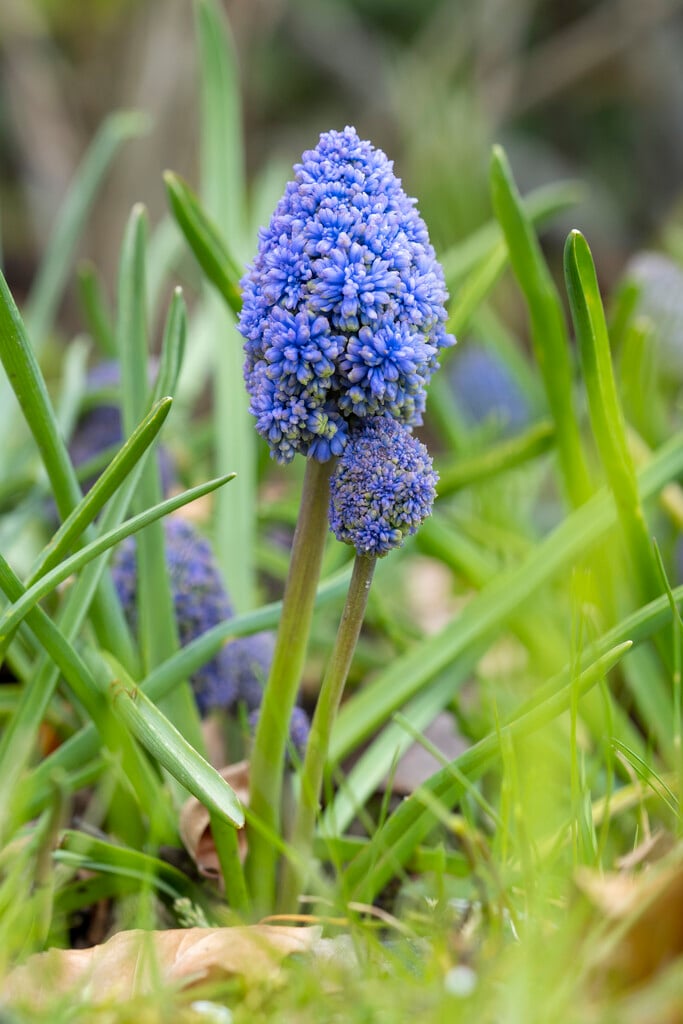Muscari armeniacum 'Fantasy Creation'
grape hyacinth 'Fantasy Creation'
A clump-forming, bulbous perennial to 20cm high, with linear green leaves. In spring, produces conical clusters, up to 7cm across, packed with small, double, violet-blue flowers
Size
Ultimate height
0.1–0.5 metresTime to ultimate height
1–2 yearsUltimate spread
0–0.1 metreGrowing conditions
Moisture
Moist but well–drained, Well–drainedpH
Acid, Alkaline, NeutralColour & scent
| Stem | Flower | Foliage | Fruit | |
| Spring | Blue Purple | Green | ||
|---|---|---|---|---|
| Summer | ||||
| Autumn | Green | |||
| Winter | Green |
Position
- Full sun
Aspect
South–facing or West–facing
Exposure
Exposed or Sheltered Hardiness
H6Botanical details
- Family
- Asparagaceae
- Native to GB / Ireland
- No
- Foliage
- Deciduous
- Habit
- Clump forming, Columnar upright
- Potentially harmful
- Ornamental bulbs - not to be eaten. Wear gloves and other protective equipment when handling Pets: Ornamental bulbs - not to be eaten - see the HTA guide to potentially harmful plants for further information and useful contact numbers
- Genus
Muscari are bulbous perennials with linear or strap-shaped leaves and small bell-shaped, tubular or urn-shaped flowers borne in a dense raceme on an erect leafless stem
- Name status
Accepted
How to grow
Cultivation
Plant 10cm deep in autumn in any moderately fertile, well-drained soil. Lift and divide congested clumps in summer to maintain vigour. Spreads readily in good conditions; good for naturalising in meadows and wildlife gardens - see bulbs: naturalising
Propagation
Propagate by division of established clumps, separating offsets when dormant in summer
Suggested planting locations and garden types
- City and courtyard gardens
- Cottage and informal garden
- Patio and container plants
- Rock garden
- Wildflower meadow
- Wildlife gardens
- Banks and slopes
- Garden edging
- Underplanting of roses and shrubs
Pruning
No pruning required
Pests
Generally pest-free
Diseases
May be susceptible to fungal infections including anther smuts and bluebell rust (see rust diseases), and bacterial soft rot and some virus diseases
Get involved
The RHS is the UK’s gardening charity, helping people and plants to grow - nurturing a healthier, happier world, one person and one plant at a time.
